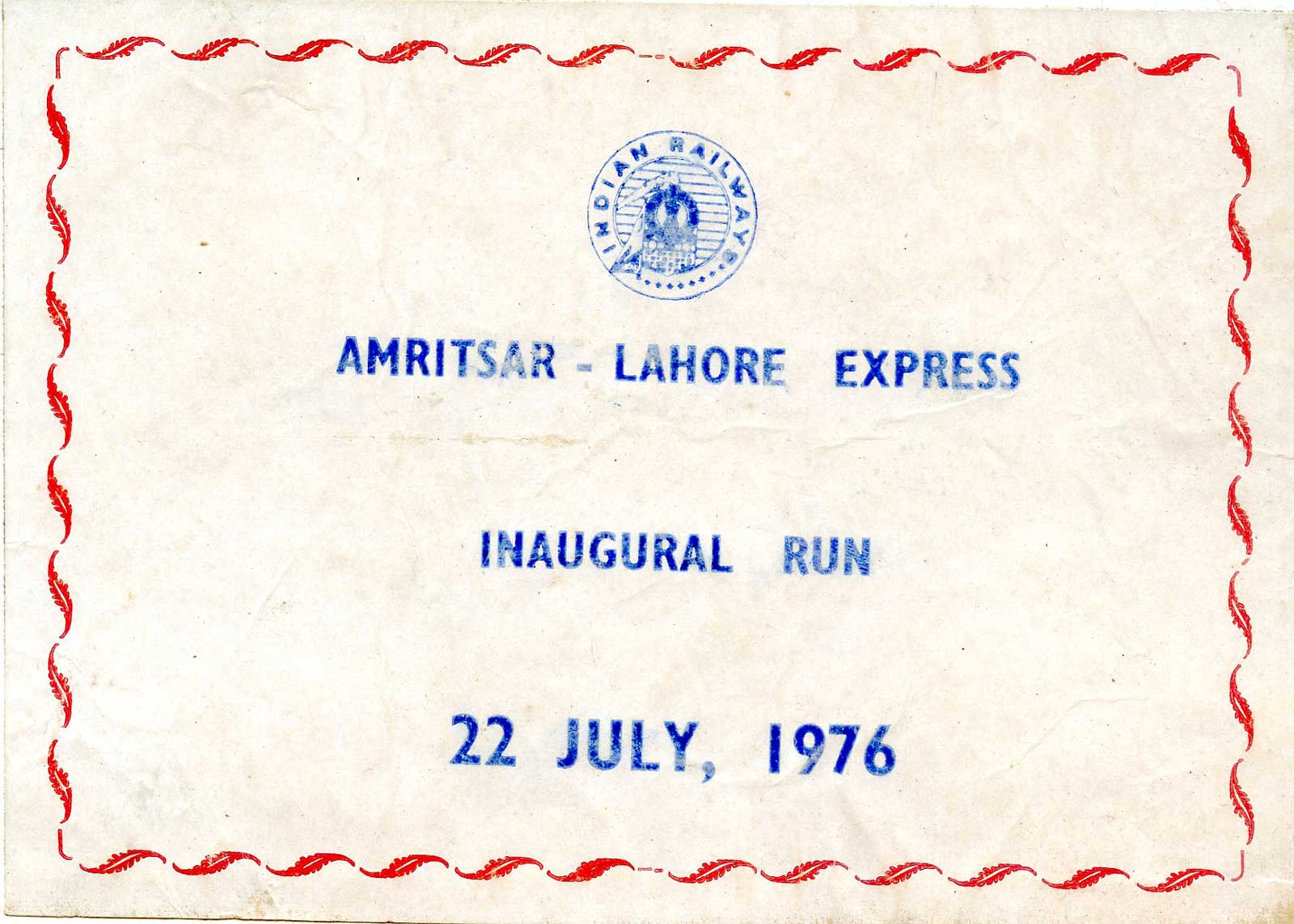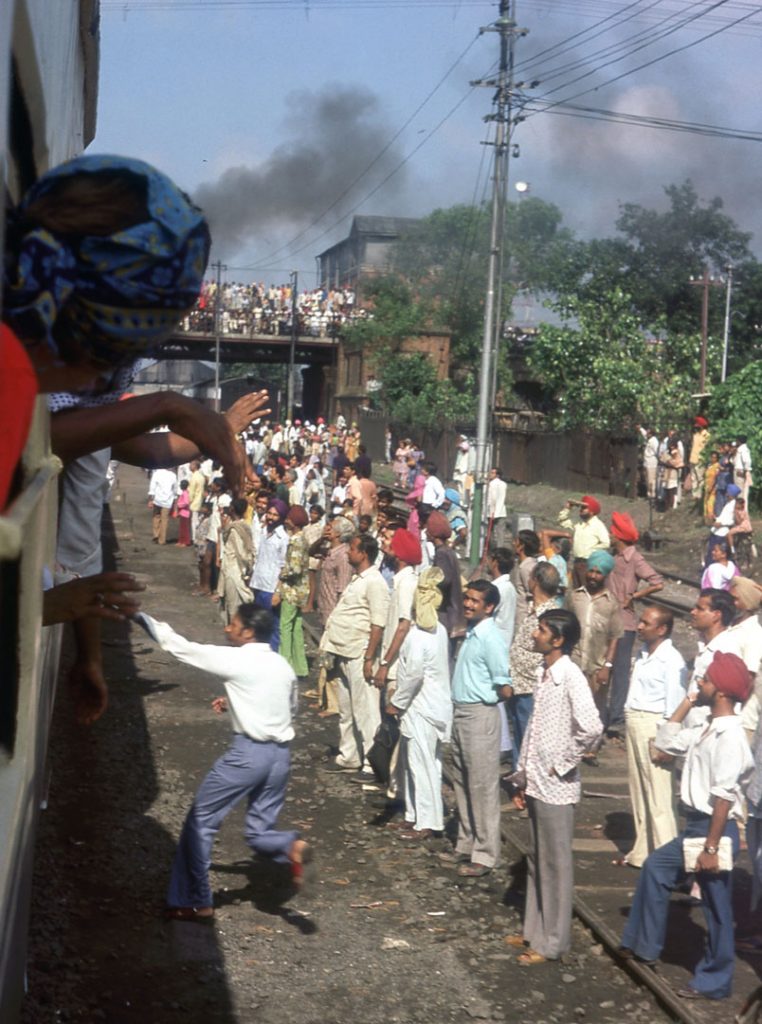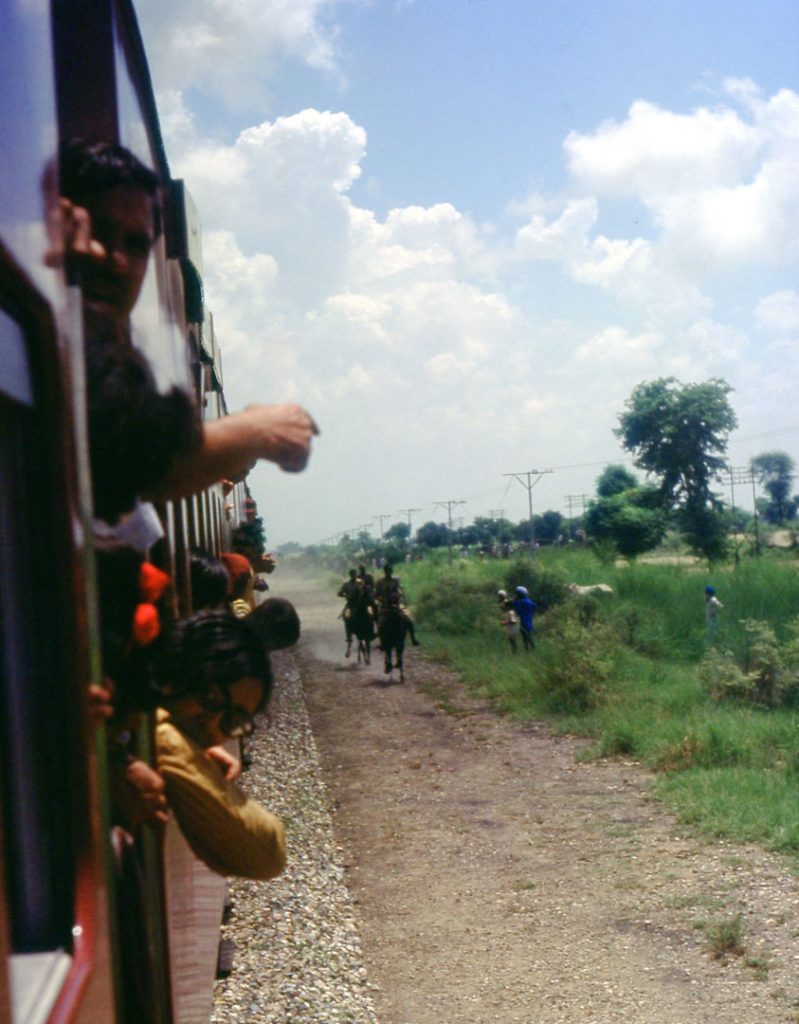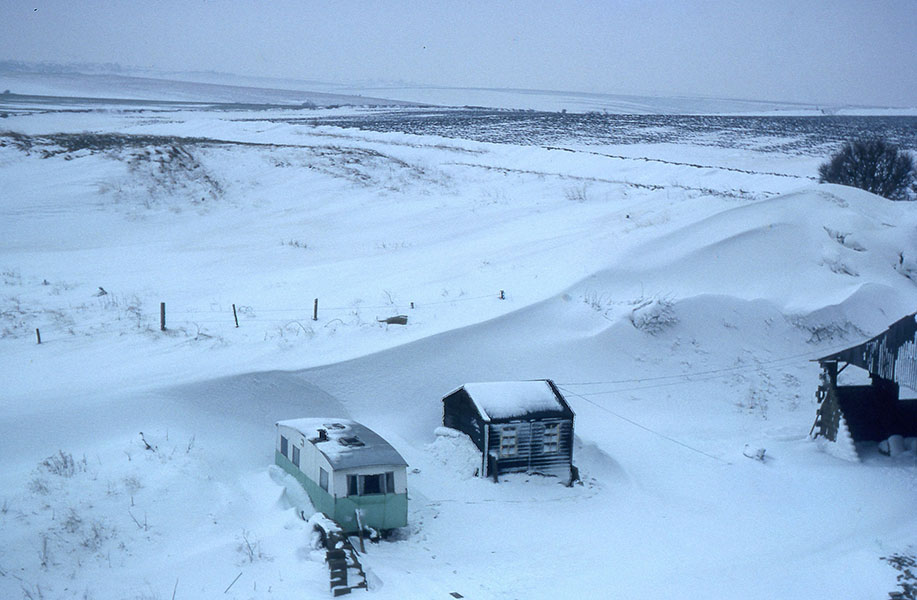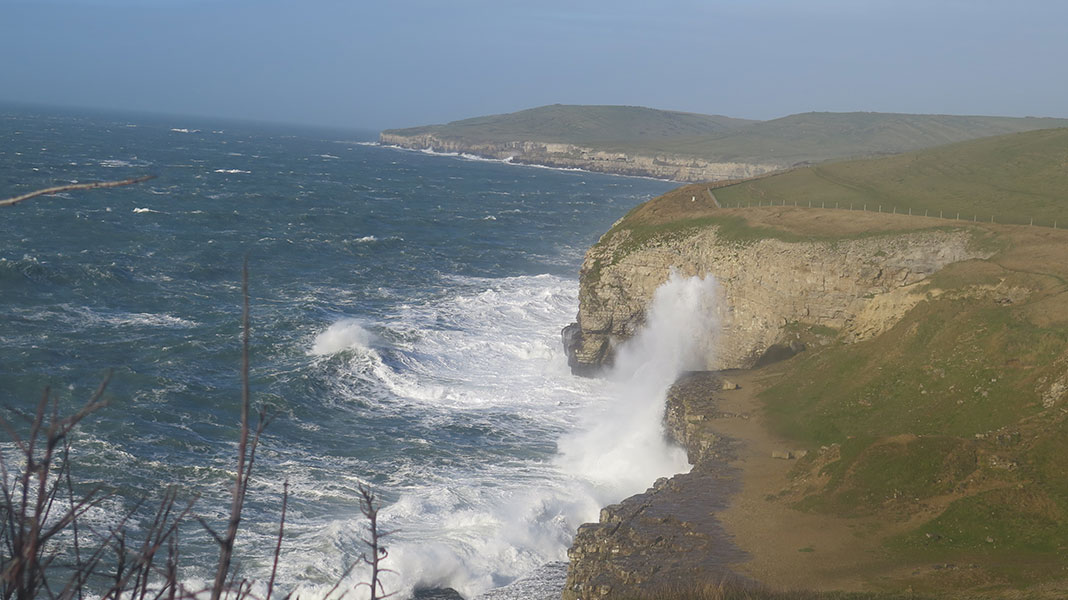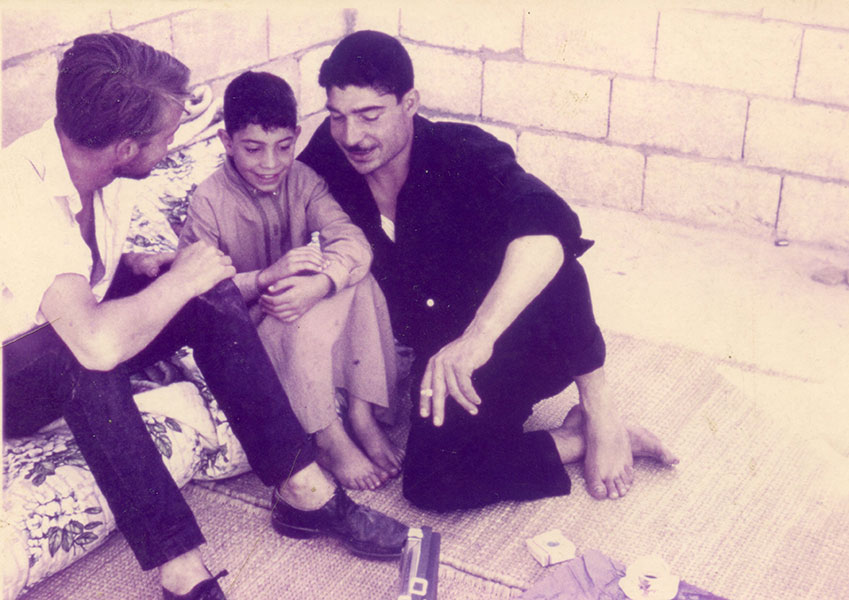11. The First New Train To Pakistan

10. In Search Of Eternal Snow
July 2, 2020
12. On Failing To Arrive
July 16, 2020O n 22nd July 1976, a train service between India and Pakistan, covering 52 km between Amritsar and Lahore, was re-established. It had been broken, in 1965, by the war which followed my first arrival in India. In Delhi at the time, I decided to catch the new train to mark the occasion. My grandmother had asked me to visit my grandfather, Ilay Ferrier's grave in Murree, Pakistan's main hill-station, and Goodie, a Hindu friend whose family quit Lahore for Delhi at Partition, wanted news of their old house. The trip could be turned to use. I caught the night train to Amritsar.
This was to be an occasion. Amritsar station had been spruced up in honour of Mohammad Qureshi, Minister of Railways, who was to preside over the inauguration. Beneath a welcoming sign, smart soldiers with bright garlands of flowers prepared to greet him. Stalls had been set up for exchanging Pakistani rupees for Indian, for selling tickets to Lahore. Each passenger received a souvenir sticky label, intended to decorate their suitcase. Having nothing but a rough rucksack, my label survives stuck inside the front cover of an Urdu Grammar, as little worn as the book itself.
There was no rush. The few passengers were journalists or foreign tourists. The Minister arrived in a flurry of bagpipes but, since he was one of several VIPs to be garlanded, in the confusion, I photographed the wrong man. The train pulled out promptly, slowly, past a crowd gathered beside the line or grouped at each passing platform to witness the historic scene. The men wore the lungi Punjabi-style, knotted in the front, and some had Sikh turbans. The few women wore the salwar-kameez. We chugged through flat, rich agricultural land so typical of Punjab on both sides of the border: Partition cut the nation not the landscape. The Monsoon had started and the fields were vivid green with young rice.
A disturbance among the passengers was directed towards the window. People pointed back down the line. Three soldiers, one a Sikh, were galloping up to overtake us, their horses raising a trail of dust. They passed my window then suddenly turned sharply away, avoiding the unannounced frontier, and set off homewards more leisurely. The train pulled up for passport and customs checks beneath India's tricolor, the soldiers khaki-clad. Cleared, I returned to my seat, only to be moved to another coach for those who had been processed.
We continued into Pakistan past clapping crowds, similarly clad but lacking the turbans. The army uniforms transformed to dark grey. The train pulled into Lahore's fort-like station at midday and there were more formalities. On the immigration form I gave my religion as 'none'. There was no single truth. The official accepted it, but a Trinidadian who did the same was hassled to write 'Hindu'. Checked against a list of undesirables, I left him arguing and shared a taxi with a French man heading into the city. Working in Delhi, he sought some interesting subject nearby. Having that week published an article on Shekhawati murals, I told him of them. Six years later, his book on the wall paintings came out before mine!
It wasn't difficult to find Goodie's house. Davis Road was central and still bore the same name. Number 8 marked a brand new four-storey block but a sprawling British-style brick bungalow lay condemned behind it. That had to be the place. A child leaving home in the aftermath of bloody Partition, Goodie had no love for Islam, so I tried to photograph the house without showing the green minaret which now rose from its centre. The owner, soft-spoken, appeared and recounted what he knew of the place. It was 120 years old, thus built soon after the East India Company took over the Sikh kingdom. He thought it had been owned by Sikhs before Partition. I gave him Goodie's address and he promised to write. He did, even including plans of the place, but she never replied. It was hard to forgive. A pity; he was the sort who would like to help restore relations. The worst aftermath of a forgotten Empire remains four homelands destroyed by religion: India, Palestine, Cyprus and Ireland.
On a bus from Rawalpindi to Murree I met Wajid, a friendly Kashmiri, who invited me to pass the night at his family's house. It was a big family: 9 brothers and 3 sisters. Next morning, before I left, they fed me well and talked of the beauties of the Swat valley.
Murree had several Christian cemeteries; I visited them all before finding my grandfather in the last, most distant of them. It lay among yew trees to the north of, and well below, the town, which spreads along a ridge looking out on the white wall of Himalayas. Poor folk had settled in the lych gateway. The cemetery was gently terraced down the hillside with every cross smashed, but many of the inscriptions remained on the base from which they had risen. Following the dates, I found my name, a faint Ilay, and all the fragments of his cross, then glued them back together. The folk from the gateway watched. Who had smashed the stones? 'Not us. We would be afraid of the bhoots – spirits. It is city folk who come here as tourists.' They would return.
Of my forebears who fought in the First War, a couple died in battle. My wounded grandfathers succumbed slowly and a shell-shocked uncle rarely escaped hospital. This Ilay wouldn't be listed among war dead; injured in Mesopotamia in 1915 and infected with septicaemia, the wound flared up occasionally for twenty years before killing him.
The search for him decided my next move. Wajid's family mentioned Swat. Why not go there? So, through floods and pouring rain, I left for Peshawar.

